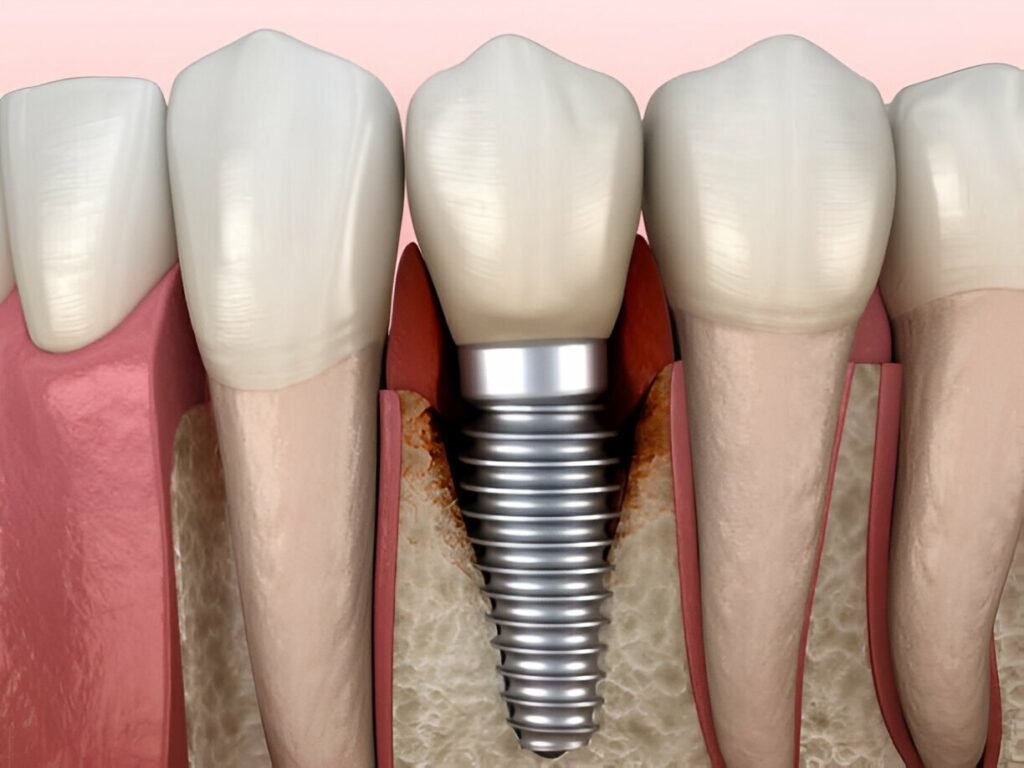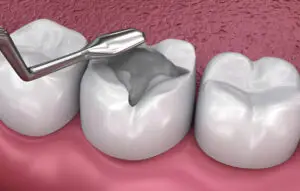Peri-implantitis is a condition that affects the tissues around dental implants. It causes inflammation and can lead to bone loss if not treated. While seeing a dentist is crucial, there are ways to manage peri-implantitis at home. This guide will help you understand how to treat peri-implantitis at home using simple steps and easy-to-find materials.
Understanding Peri-Implantitis
Peri-implantitis is similar to gum disease but affects implants. It starts with redness and swelling of the gums around the implant. If not treated, it can cause the bone supporting the implant to deteriorate. This can eventually lead to the implant becoming loose or falling out. Regular dental check-ups are important, but you can also take steps at home to manage the condition.
Proper Oral Hygiene
Good oral hygiene is the first step in treating peri-implantitis at home. Follow these steps to keep your mouth clean and healthy:
- Brush Twice Daily: Use a soft-bristled toothbrush to brush your teeth and implants twice a day. Make sure to brush gently around the implant to avoid irritating the gums.
- Floss Daily: Flossing is crucial to remove plaque and food particles between your teeth and around the implant. Use floss specifically designed for implants or a water flosser for better results.
- Use Antibacterial Mouthwash: Rinse your mouth with an antibacterial mouthwash twice a day. This helps reduce bacteria and inflammation around the implant.
Home Remedies
Some home remedies can help reduce inflammation and support gum health. Here are a few you can try:
Saline Rinse
A saline rinse is a simple and effective way to reduce inflammation. Here’s how to do it:
- Mix a teaspoon of salt in a cup of warm water.
- Swish the solution around your mouth for 30 seconds.
- Spit it out and repeat twice a day.
Turmeric Paste
Turmeric has anti-inflammatory properties that can help soothe irritated gums. To make a turmeric paste:
- Mix a teaspoon of turmeric powder with a little water to form a paste.
- Apply the paste to the affected area using a cotton swab.
- Leave it on for 10 minutes, then rinse your mouth with water.
- Repeat this process once a day.
Coconut Oil Pulling
Oil pulling with coconut oil can help reduce bacteria in the mouth. Follow these steps:
- Take a tablespoon of coconut oil and swish it around your mouth for 15-20 minutes.
- Spit out the oil and rinse your mouth with warm water.
- Brush your teeth as usual.
- Do this once a day, preferably in the morning.
Diet and Lifestyle Changes
What you eat and your lifestyle can impact your oral health. Consider these changes to help manage peri-implantitis:
Eat a Balanced Diet
A diet rich in vitamins and minerals supports gum health. Include these foods in your diet:
- Fruits and Vegetables: High in vitamins and antioxidants.
- Dairy Products: Rich in calcium, which strengthens bones and teeth.
- Nuts and Seeds: Provide essential nutrients for gum health.
Avoid Sugary Foods and Drinks
Sugary foods and drinks can increase the risk of infection and inflammation. Limit your intake of sweets, fizzy drinks, and other sugary treats.
Quit Smoking
Smoking is a major risk factor for peri-implantitis. It reduces blood flow to the gums and impairs healing. Quitting smoking can improve your overall oral health and help manage peri-implantitis.
Regular Check-ups
While home care is important, regular dental check-ups are essential. Your dentist can monitor the condition of your implant and provide professional cleaning and treatment if necessary. Make sure to visit your dentist at least twice a year or as recommended.
When to Seek Professional Help
If your symptoms worsen or do not improve with home care, seek professional help immediately. Signs that you need to see a dentist include:
- Severe Pain: Persistent or worsening pain around the implant.
- Bleeding Gums: Gums that bleed easily when brushing or flossing.
- Pus or Discharge: Pus or other discharge around the implant.
- Loose Implant: The implant feels loose or wobbly.
Book Your Appointment Now
Conclusion
Treating peri-implantitis at home involves maintaining good oral hygiene, using home remedies, and making diet and lifestyle changes. While these steps can help manage the condition, regular dental visits are crucial for proper care. By following these guidelines, you can keep your implants healthy and avoid complications. Remember, early intervention is key to preventing severe peri-implantitis and ensuring the longevity of your dental implants.
Contact Us for Professional Care
If you’re experiencing symptoms of peri-implantitis or have concerns about your dental implants, don’t hesitate to seek professional advice. At Bridge St Aesthetic and Dental Implant Clinic, our experienced team is here to help you with all your dental needs. We offer comprehensive care and personalised treatment plans to ensure your implants stay healthy and strong. Contact us today to schedule an appointment and take the first step towards better oral health.






